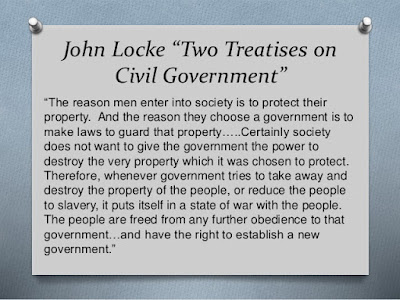new 3º ESO students production
Analyzes works (or fragments of them) of some authors of this period in their context.
Distinguishes the characteristics of monarchical parliamentary and absolute regimes.
a) What do the autors of "Two Treatises on Civil Government" and "The Leviathan" have in common?
b) Who is each work directed at?
c) What does Locke consider the government to be useful for?
d) What kind of government system does hobbes defend? Pick up a phrase that justifies it.
e) What political system is guessed after reading the text of Locke?
f) Do you think the ideas in these works are useful to understand modernlife. Explain your answer.
c) What does Locke consider the government to be useful for?
d) What kind of government system does hobbes defend? Pick up a phrase that justifies it.
e) What political system is guessed after reading the text of Locke?
f) Do you think the ideas in these works are useful to understand modernlife. Explain your answer.
First text:
Second text:
CHAPTER XVIII
OF THE RIGHTS OF SOVEREIGNS BY INSTITUTION, "The Leviathan", by Thomas Hobbes.
A COMMONWEALTH is said to be instituted when a multitude of men do
agree, and covenant, every one with every one, that to whatsoever man, or
assembly of men, shall be given by the major part the right to present the
person of them all, that is to say, to be their representative; every one, as well
he that voted for it as he that voted against it, shall authorize all the actions
and judgements of that man, or assembly of men, in the same manner as if
they were his own, to the end to live peaceably amongst themselves, and be
protected against other men.
From this institution of a Commonwealth are derived all the rights and
faculties of him, or them, on whom the sovereign power is conferred by the
consent of the people assembled.
First, because they covenant, it is to be understood they are not obliged by
former covenant to anything repugnant hereunto. And consequently they that
have already instituted a Commonwealth, being thereby bound by covenant to
own the actions and judgements of one, cannot lawfully make a new covenant
amongst themselves to be obedient to any other, in anything whatsoever,
without his permission. And therefore, they that are subjects to a monarch
cannot without his leave cast off monarchy and return to the confusion of a
disunited multitude; nor transfer their person from him that beareth it to
another man, other assembly of men: for they are bound, every man to every
man, to own and be reputed author of all that already is their sovereign shall
do and judge fit to be done; so that any one man dissenting, all the rest should
break their covenant made to that man, which is injustice: and they have also
every man given the sovereignty to him that beareth their person; and
therefore if they depose him, they take from him that which is his own, and so
again it is injustice. Besides, if he that attempteth to depose his sovereign be
killed or punished by him for such attempt, he is author of his own
punishment, as being, by the institution, author of all his sovereign shall do;
and because it is injustice for a man to do anything for which he may be
punished by his own authority, he is also upon that title unjust. And whereas
some men have pretended for their disobedience to their sovereign a new
covenant, made, not with men but with God, this also is unjust: for there is no
covenant with God but by mediation of somebody that representeth God's
person, which none doth but God's lieutenant who hath the sovereignty under
God. But this pretence of covenant with God is so evident a lie, even in the
pretenders' own consciences, that it is not only an act of an unjust, but also of
a vile and unmanly disposition.





Comentarios
Publicar un comentario